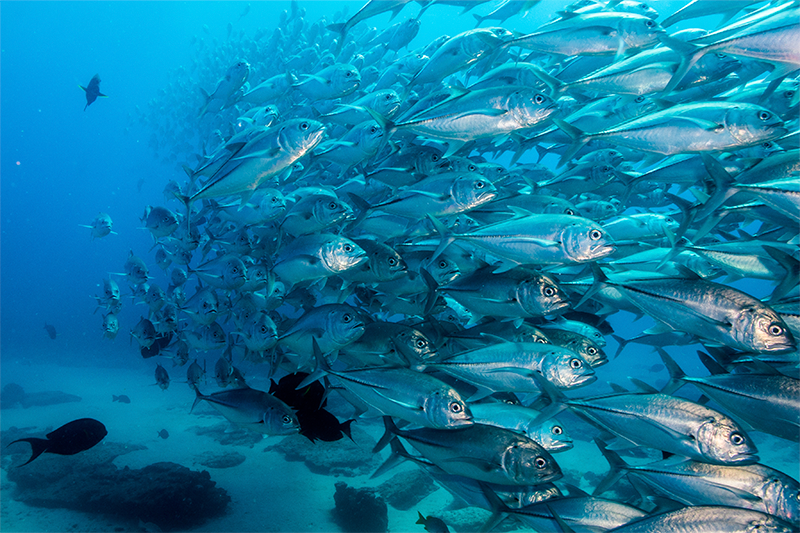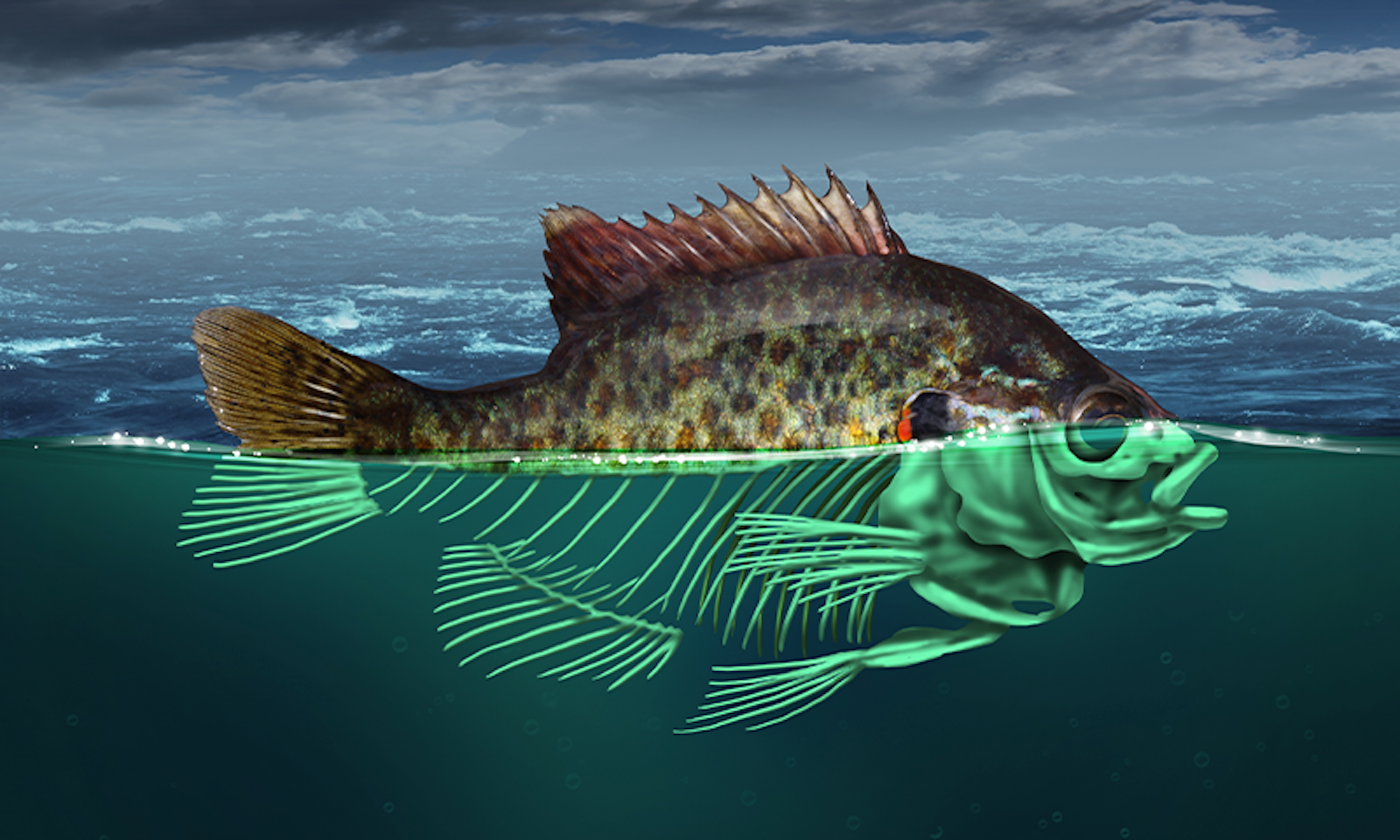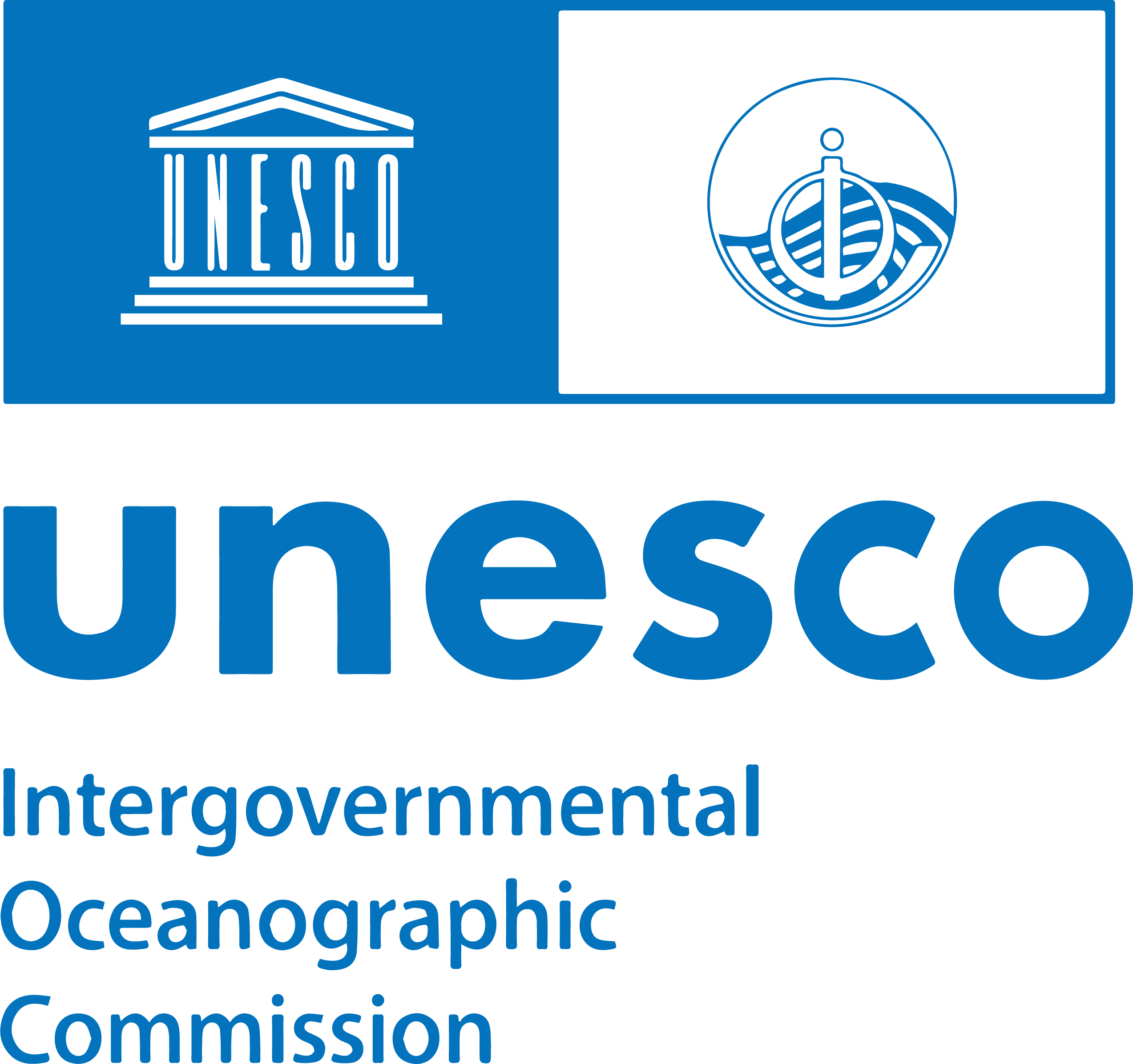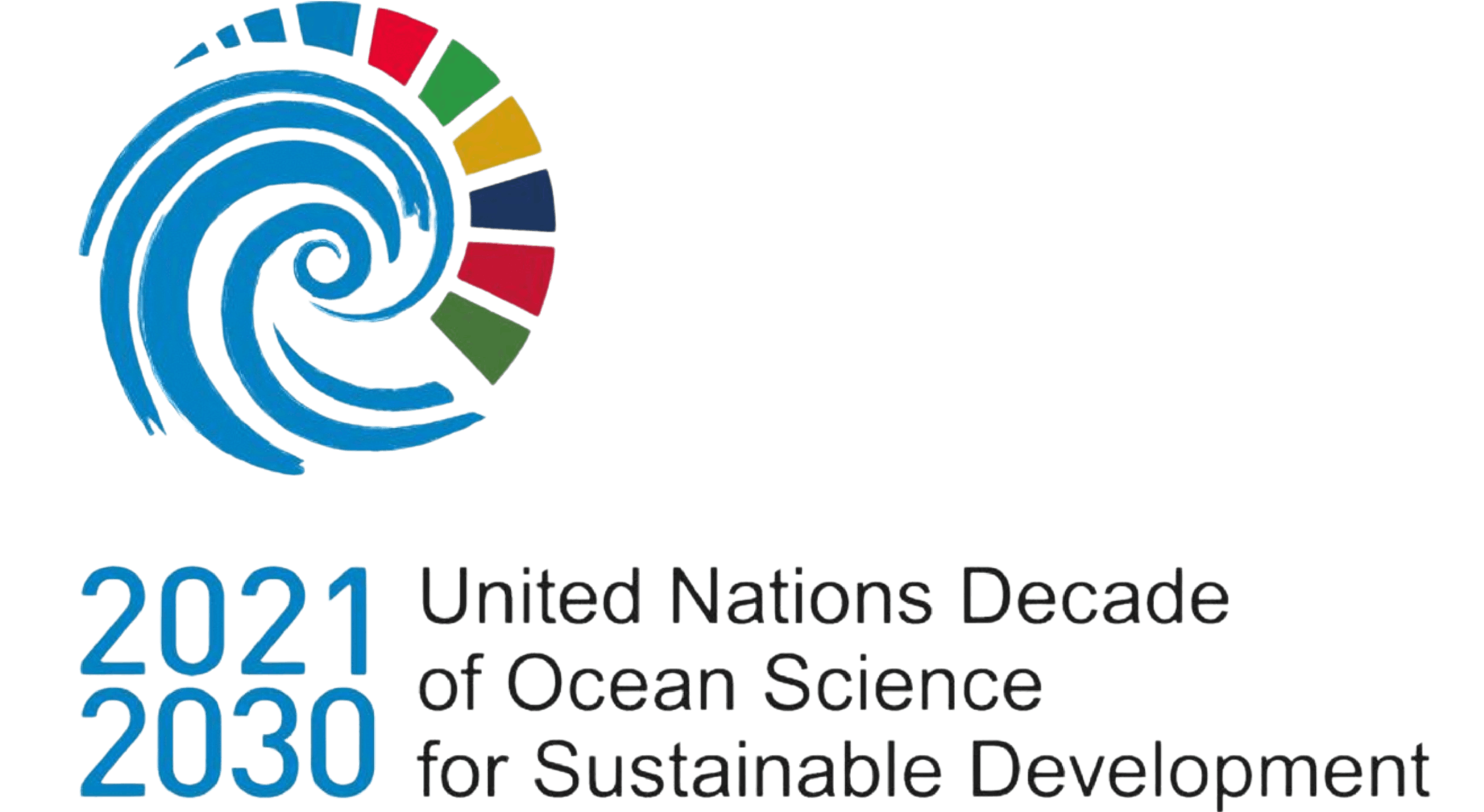Climate change is already causing ocean fish populations to decline and shift their ranges. But that’s not the only disruption: Research is now suggesting that warming might also influence the very makeup of fish bodies. By transforming ocean food webs, warmer temperatures can change the amount of minerals and fats that fish get through their diet, and potentially affect their metabolism and their ability to excrete toxic substances.
Though the research is still at an early stage, studies suggest some potentially worrying trends, including a widespread decline in omega-3 fats and higher toxin levels in certain fish species and other kinds of seafood. If such trends hold up with further research, this could mean major effects for human health.
The decline in omega-3 fats begins at the bottom of the food web.
Seafood provides vital nourishment to more than 3 billion people worldwide, especially in some under-resourced tropical countries where people rely on the ocean for more than half of their animal protein intake. Seafood is a key source of not only protein, but also brain and heart health promoting omega-3 fats and key minerals like iron and zinc. “The potential implications for global nutrient security could be quite large,” says Tanika Shalders, a marine scientist at Australia’s National Marine Science Centre at Southern Cross University.
The decline in omega-3 fats begins at the bottom of the food web, where marine algae called phytoplankton synthesize two kinds of fatty acids to build their cell membranes. At cooler temperatures, phytoplankton tend to produce more unsaturated fatty acids like omega-3s, as these create more flexible membranes that don’t freeze up, explains aquaculture nutrition specialist Stefanie Colombo of Dalhousie University. At warmer temperatures, production shifts to saturated fatty acids that are stiffer and provide more structure.
This means that, as the ocean warms, phytoplankton will make less of the healthy omega-3 fats. In one 2016 study by Colombo and colleagues, their computer model predicted that the global phytoplankton production of docosahexaenoic acid (DHA)—a type of omega-3—could decline by nearly 28 percent by this century’s end if ocean surface temperatures warmed by 2.5 degrees Celsius, a figure well within the range of current climate trajectories.

That’s a troubling prospect considering that “all other organisms are basically getting their DHA from that phytoplankton as it gets passed through the food chain,” Colombo says. Oceanic fish largely rely on plankton to get their DHA—which is why fish in cooler regions tend to have more omega-3s than tropical species—and fish, in turn, are our main dietary source of DHA. This fatty acid is one of the most important omega-3s for human health and is linked to a range of benefits, including lower blood pressure, reduced inflammation, and lower risks of dying from heart disease.
When Colombo and her colleagues recently predicted the impact of oceanic DHA declines on people, “we found something that could be quite alarming,” she says. The global availability of DHA in fish could decline by 10 to 58 percent by 2100, depending on global warming. That’s particularly worrying, Colombo says, considering that around half of the world’s fishing areas already provide less DHA than what’s officially recommended to maintain health.
Colombo stresses that more research is needed to understand the scale of future DHA declines. But if this trend holds up, “there’s going to be an overall massive loss in one of the most essential nutrients for the human diet that prevents illness and disease,” says Shalders.
Scientists have detected spikes in copper in whelks, prawns, and oysters after heat waves.
Climate-driven impacts on ecosystems are generally tricky to predict, and in some cases they present mixed results. One unexpected case played out recently when researchers led by James Robinson, a marine ecologist at Lancaster University in the United Kingdom, analyzed fish collected from different coral reefs around the Seychelles islands in the Indian Ocean. Some of the reefs were still heavily damaged from a 1998 heat wave and remained overgrown with seaweed, whereas others had recovered. Surprisingly, the researchers found that not only were there many more herbivorous fish on the seaweed-smothered, unhealthy reefs, but those fish were actually richer in iron and zinc—“which is kind of crazy,” Robinson says.
He suspects this is because the seaweed has fundamentally transformed the base of the area’s food web and the nutrients flowing into it. Locals eating these fish may benefit slightly from the additional nutrients, he adds. But changes in micronutrient concentrations appear to be varied; other studies have found decreases in iron and selenium in Pacific oysters following heatwaves, for instance. How future warming will affect micronutrients in fish likely depends on the species in question and how its environment has changed, Shalders says.
One of her main concerns is the increasing reports of elevated toxins in certain marine organisms. These include heavy metals like copper, methylmercury, and arsenic, which at high concentrations can cause organ damage and neurological impairment. Scientists have detected spikes in copper in frequently-consumed species of whelks, prawns, and oysters after heat waves, as well as longer-term increases in methylmercury in cod, Atlantic bluefin, and swordfish. One hypothesis is that “increasing temperature can change the metabolism of marine fish and other species,” Shalders says. “So it also changes the way that the organisms can metabolize microelements and toxic metals.”
Other research hints at more future changes we might see in seafood—such as possible reductions in protein content or changes in the taste and texture of certain seafood species. But these kinds of effects are not well understood, and some studies have even found no nutritional changes under warming. Ultimately, Robinson says, we need more research to understand how nutritious the fish of the future will be.
The good news is that there may be ways to mitigate some of the nutritional shortfalls in seafood. To avoid omega-3 deficits, for instance, there are efforts in the aquaculture industry to make farmed fish more nutritious by feeding them with DHA-rich algae grown on land. However, many lower-income countries may not have the resources to do that at the necessary scale. There it becomes even more important to protect existing fish populations from threats like overfishing, Colombo says.
As the planet warms, “it is not a good situation that we’re going to be in,” says Colombo of the DHA decline. “Our ability to sustainably produce our own nutrients from aquatic ecosystems is going to be key.” ![]()
Lead image: Lightspring / Shutterstock


































